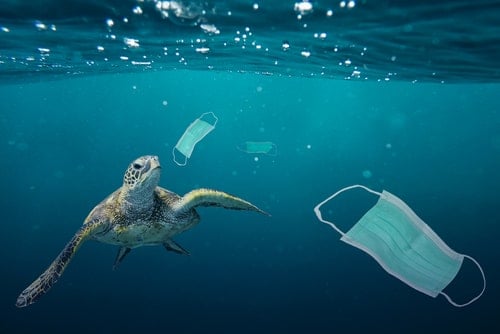Deadline: 06-Oct-21
The European Commission (EC) is offering grants to Explore the Connection between Biodiversity, Ecosystems Services, Pandemics and Epidemic Risk to recover biodiversity and ecosystems services whilst predicting and preventing future pandemics and epidemic outbreaks, especially in tropical areas and biodiversity hotspots, through collaboration between environmental (including climate), ecological, biomedical and social sciences.
This call aims to recover biodiversity and ecosystems services whilst predicting and preventing future pandemics and epidemic outbreaks, especially in tropical areas and biodiversity hotspots, through collaboration between environmental (including climate), ecological, biomedical and social sciences. Projects should map, identify and characterise (e.g. with molecular techniques) potential emerging pathogens and their hosts/vectors in both carefully selected natural and human-modified areas, explore the relationship of biodiversity and ecosystems dynamics with microbiomes’ evolution and spread, within the broader context of socio-economic driving forces, climate change, public health and animal health.
Funding Information
The check will normally be done for the coordinator if the requested grant amount is equal to or greater than EUR 500 000, except for:
- public bodies (entities established as a public body under national law, including local, regional or national authorities) or international organisations; and
- cases where the individual requested grant amount is not more than EUR 60 000 (lowvalue grant).
Expected Outcomes
Projects results are expected to contribute to some of the following expected outcomes:
- The evolution and spread of microbiomes in the wild and their relationship with biodiversity loss and ecosystems dynamics is understood and modelled, within the broader context of socio-economic driving forces, climate change, public health, and increasing resilience.
- Epidemics risks are understood, mapped and forecasted on the basis of relationships between factors such as land use, ecology, climate, biodiversity, and socio-economic factors, including wildlife trade, that determine the pace at which new pathogens emerge and then spread once transmission between humans occurs.
- Contribution to ecosystem services: use of novel technologies for better land use and environmental management, increasing (or at least preserving) biodiversity under unfavourable environmental/climatic conditions.
- Sustainable prevention/mitigation measures improving microbiomes and biodiversity conservation/recovery are proposed.
- Molecular and phylogenetic characterisation of potential emerging and novel pathogens and their hosts in both natural and human-modified areas for use as pre-leads in future vaccines, antimicrobials and other prevention strategies.
- Pathogen detection and surveillance strategies, focusing on human populations at risk but also on potential reservoirs and vectors, based on rapid, on-site, genomic tools allowing a fast and early response when facing potential outbreaks.
- New multidisciplinary collaborations that embody the One Health/EcoHealth concept are active and efficient as a way to prevent pandemics, sustain biodiversity, promote human, animal and ecosystem health and nature conservation, as well as support the needed transformative change.
- Effective strategies to increase awareness and participation of indigenous and local communities in pandemics prevention are in place: risks management and opportunities for biodiversity conservation/recovery are built together.
Eligibility Criteria
To be eligible for funding, applicants must be established in one of the eligible countries, i.e.:
- the Member States of the European Union, including their outermost regions;
- the Overseas Countries and Territories (OCTs) linked to the Member States;
- eligible non-EU countries:
- countries associated to Horizon Europe;
- low- and middle-income countries.
For more information, visit European Commission.
